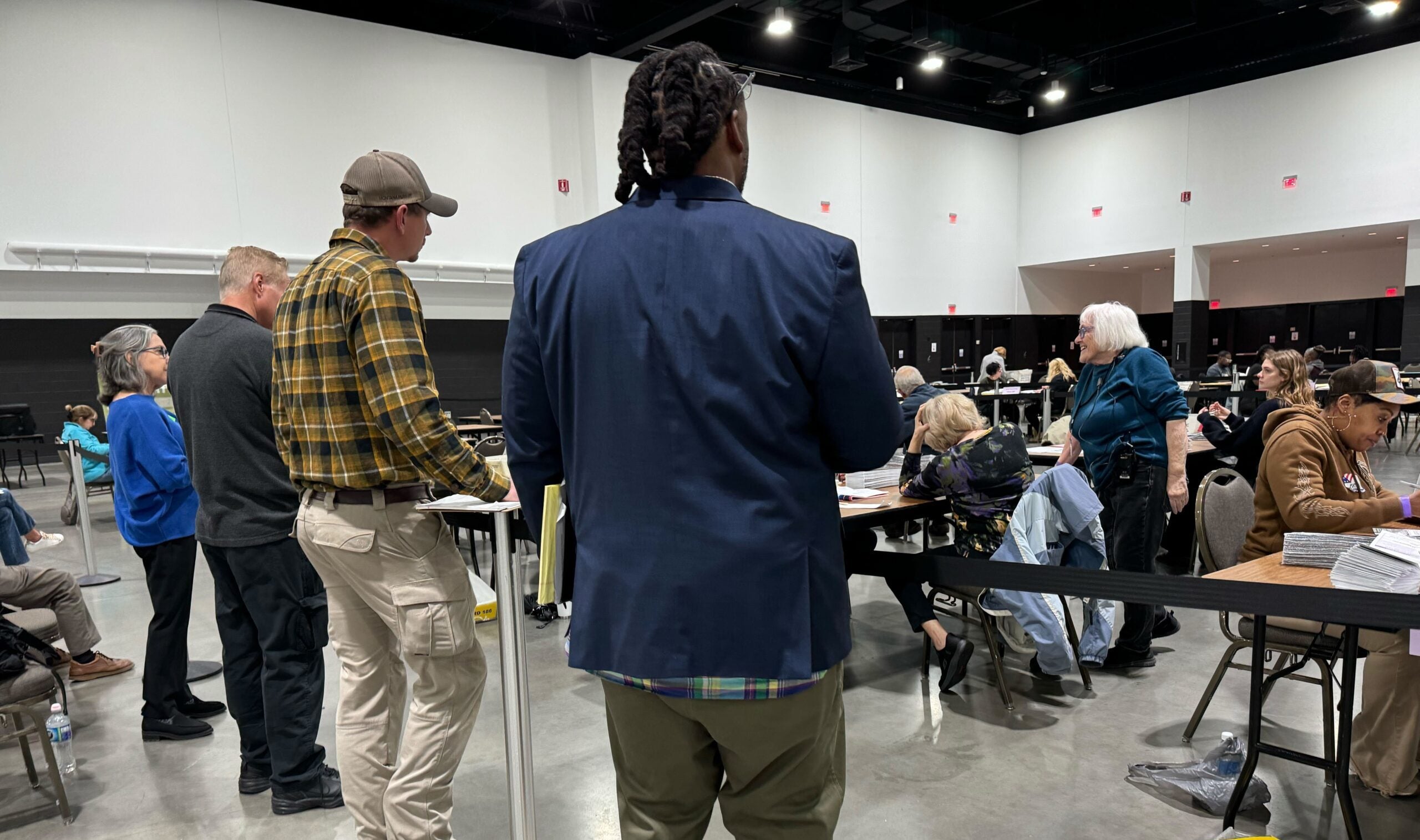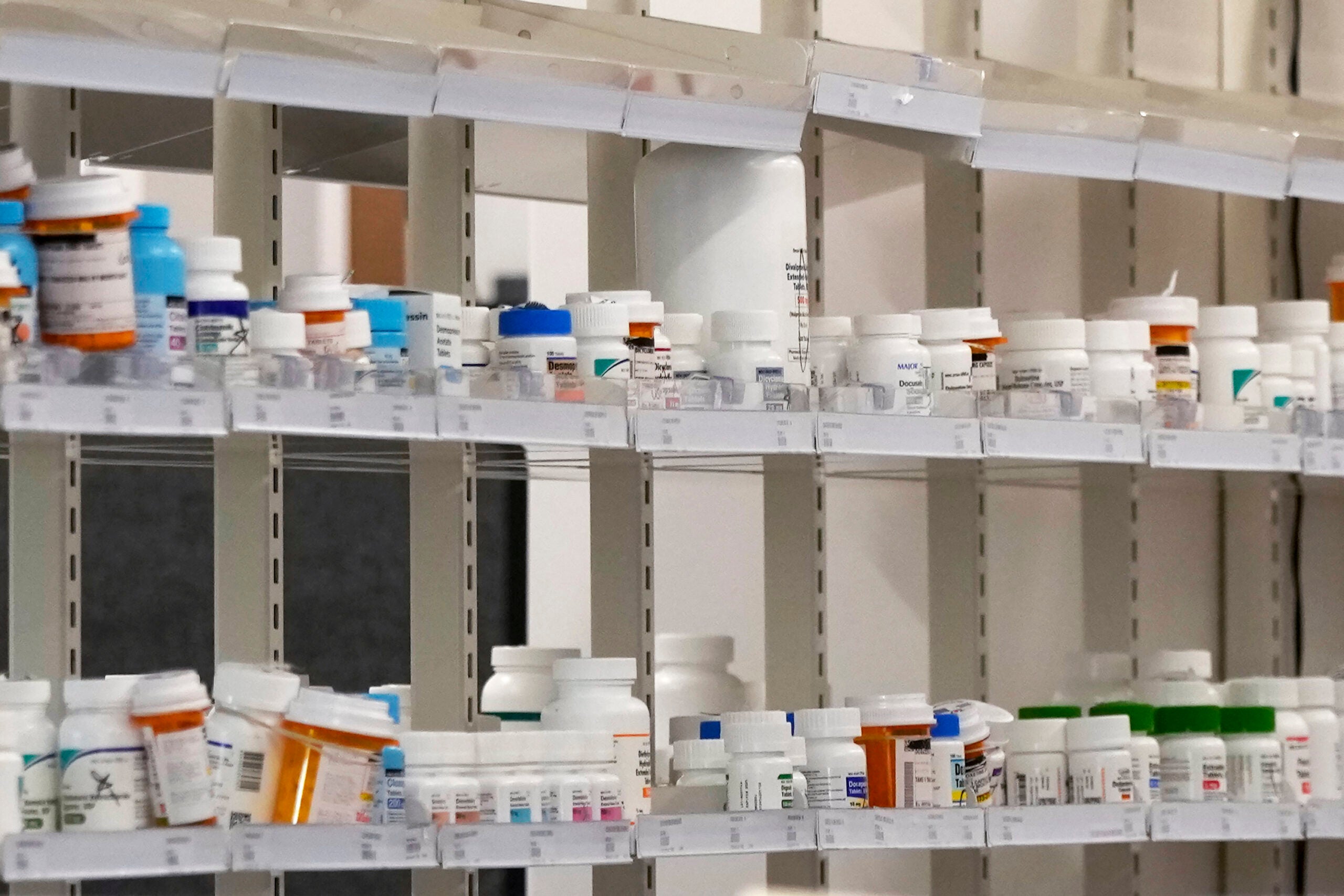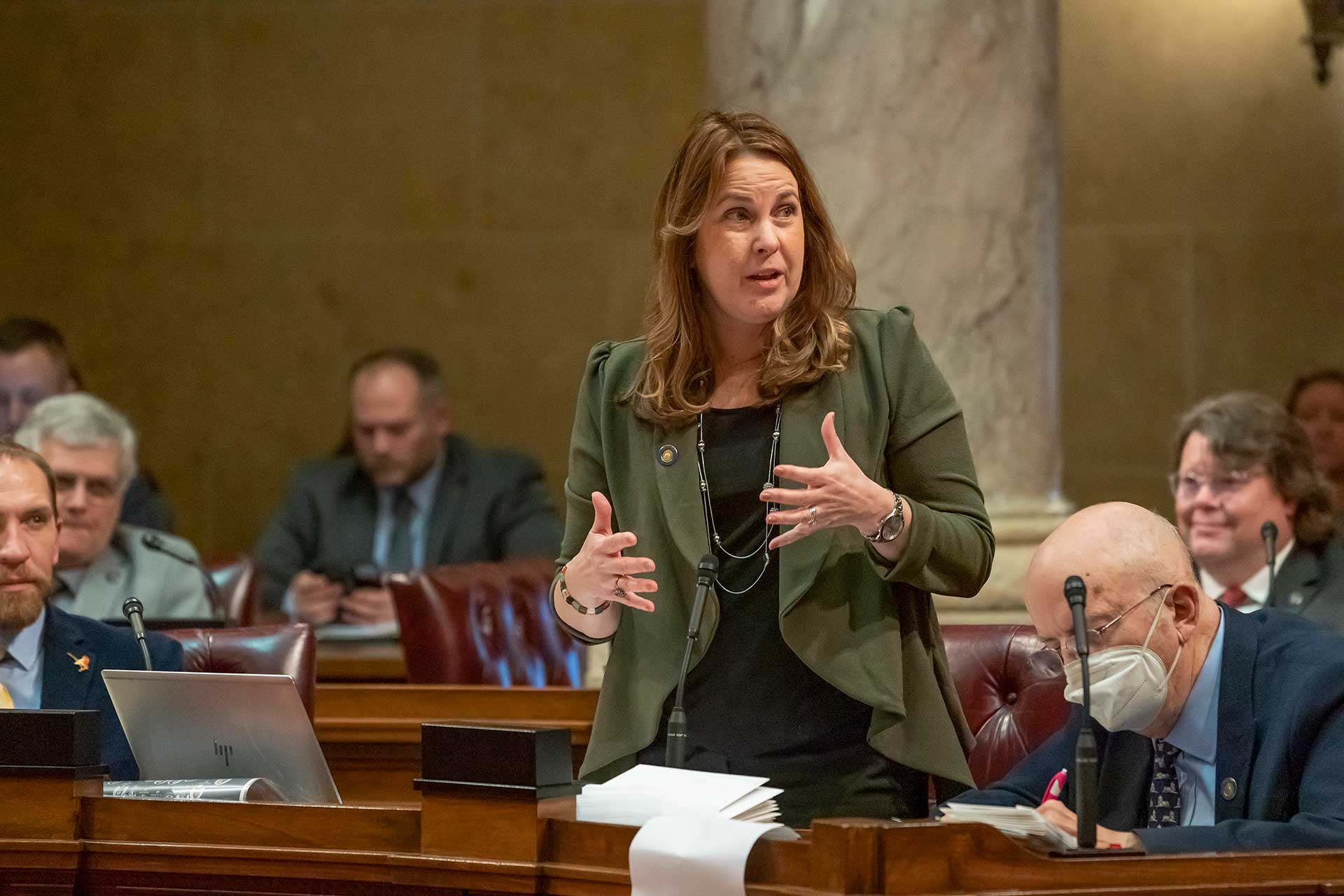Wisconsin Democrats say they’ll introduce a package of bills to lower drug prices, make school lunch free and create a tax credit for low-income people as their first official actions in a new legislative session.
It’s the party’s opening move in their first session since they won more seats in the last election, but Democrats are still outnumbered in Madison, and they have not gained bipartisan traction on similar proposals in the past.
“I talked to voters all across my district, and overwhelmingly, they said they want … their leaders to address the cost of living,” said. Rep. Ryan Spaude, D-Ashwaubenon.
Stay informed on the latest news
Sign up for WPR’s email newsletter.
The legislative package includes three proposals.
One would aim to lower the cost of prescription drugs through a variety of tweaks to the procurement process, capping insulin prices, eliminating co-pays for BadgerCare recipients and allowing Wisconsin to participate in drug-sharing programs across state lines.
Another would put more state money toward the existing National School Lunch Program. And a third would expand a tax credit for low-income renters and homeowners, which Democrats argue will offer tax relief at a time of rising home prices and inflation.
Democrats introduced school lunch legislation and a similar tax credit proposal in the last legislative session, which received no bipartisan support and ultimately went nowhere. Both parties have supported efforts to control health care costs, though the latest proposal by Democrats is more broad than those backed previously by Republicans.
Minority Leader Greta Neubauer, D-Racine, said she hoped these proposals would see more bipartisan support this session, when lawmakers are representing new districts, some of which are more competitive than they’ve been in years.
“We know that every one of us has to go back and explain why something did or didn’t happen in Madison, and we know that there are many more people who are in very competitive districts, and so we hope that that will yield more bipartisan work this year,” she said.
Republicans currently hold a 54-45 majority in the Assembly and an 18-15 majority in the Senate, giving them the power to control the agenda in both chambers. They’ve said their top priorities include using the state surplus for tax cuts and passing a balanced budget.
Wisconsin Public Radio, © Copyright 2025, Board of Regents of the University of Wisconsin System and Wisconsin Educational Communications Board.






